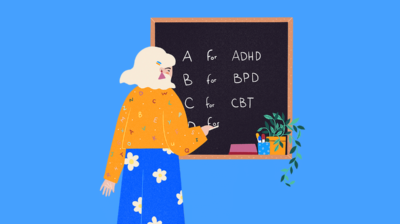How Acceptance and Commitment Therapy (ACT) has helped me
Clara talks about being in touch with your emotions and knowing what values are important in to you.

Today, I came across a journal entry I had written months ago about understanding who I even was. At the time, I found myself totally confused by the seemingly endless inconsistencies in my personality. I had centred my identity around personality traits that could come or go depending on my mood. Sometimes I’m really chatty, yet other times I am very introverted. I can work hard, but usually only at the very last minute when I have no option but to do so. I also looked at my identity as though my sense of self was simply what I did, or achieved in my life. So, when I don’t feel like I am achieving very much, or working very hard, naturally that makes me feel uncomfortable. We can’t all be achieving in big, tangible ways every day, so needless to say, this wasn’t great for my self esteem.
Acceptance and Commitment Therapy
Since writing that journal entry, I have applied the principles of Acceptance and Commitment Therapy (ACT) to my life. To put it simply, ACT is about identifying what you value, and then committing to orient your life around those values. It is also about building an awareness of your thoughts, feelings and behaviours. To do this, I answered a variety of questions from an ACT workbook that helped me to discover what I value. Realising what my personal values are has helped me directly come to make sense of my identity and how I want to move forward in my life. Values are a much more stable basis for your identity than your achievements, the appraisal of others, or hobbies and skills.
The below questions from the workbook can help you identifying your own values:
- What do you think is your main purpose in life?
- What do you prefer, standing out or blending in?
- What is the most important thing to you right now?
- What do you hope for?
- What do you hope people will remember about you?
- What makes a good life?
- Who is the wisest person you know?
The benefit of knowing your values
Knowing your values also gives you a healthier benchmark for success. Values are not goals, but rather ways of living. Honesty, empathy, loyalty, hard work, confidence, leadership, mindfulness and proactivity are examples of some values. Every day that I can say I consciously lived in line with my values, I can determine to be a success. I can quantify the success in the form of goals, but these goals need not be difficult to achieve to be worthy of acknowledgement.
Being aware of your thoughts and feelings
However, one of the key parts of ACT is recognising that we can come up against major mental blocks in doing what would bring meaning to our lives. To overcome our own fears, we must also build an awareness of our thoughts, feelings and behaviours. If there is something you know would be meaningful to you, but you have fears around your ability, what others might think, or any other kind of anxiety-fuelling thoughts, those thoughts can interfere with your decision to do the meaningful thing – if you actually believe them.
ACT encourages you to take note of your thoughts, therefore becoming separate to them, a concept known as cognitive defusion. When you realise you are not your thoughts, but actually the observer of them, you can choose the thoughts that will help you to live in line with your values. Unlike Cognitive Behavioural Therapy, ACT is not about changing these thoughts in order to feel differently, but rather embracing your emotions as valid and choosing to act in a value-driven way regardless.
ACT has helped me to feel my emotions rather than distract myself from them. In actively embracing all my feelings, I actually have a much better sense of wellbeing. Identifying my values immediately had a positive effect on my days as I choose behaviours that make me feel successful, with success defined by my own personal metrics. I have tried more new experiences that usually I would avoid out of pure fear or anxiety, but now I can feel the fear and do things anyway. The powerlessness that can come from feeling anxious has been traded out for the confidence I feel knowing the way I feel does not have to dictate how I behave.
Feeling overwhelmed and want to talk to someone?
- Get anonymous support 24/7 with our text message support service
- Connect with a trained volunteer who will listen to you, and help you to move forward feeling better
- Whatsapp us now or free-text SPUNOUT to 50808 to begin.
- Find out more about our text message support service
If you are a customer of the 48 or An Post network or cannot get through using the ‘50808’ short code please text HELLO to 086 1800 280 (standard message rates may apply). Some smaller networks do not support short codes like ‘50808’.






